Science
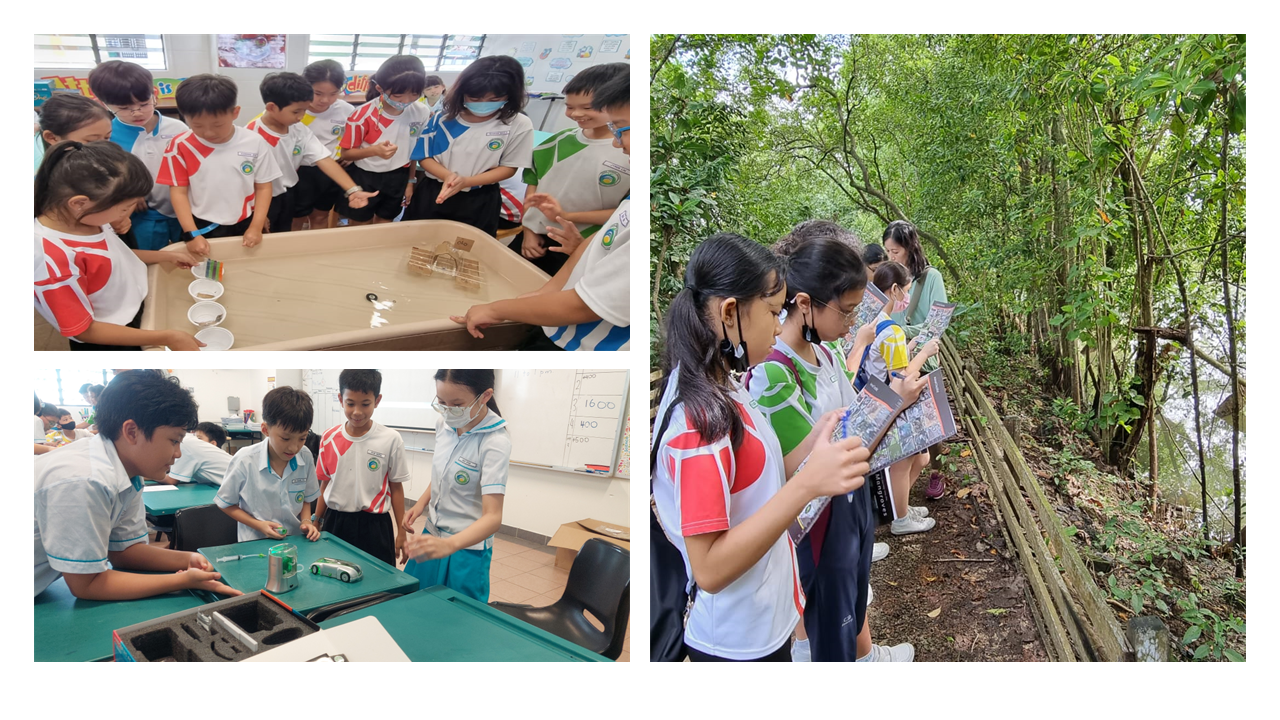
Department Goals
To fuel a spirit of curiosity in our students to help them grow and become scientifically literate citizens in the world and for the world.
Our Approach
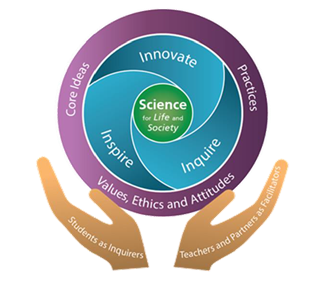
The Science Curriculum Framework encapsulates the thrust of Science education to provide our students with a strong foundation in Science for life, learning, citizenry, and work. Science for Life and Society in the centre circle captures the essence of the goals of Science education.
Adopting an inquiry-based approach to learning Science in Oasis, our students have the opportunities to investigate problems and search for possible solutions through asking questions, making observations, hypotheses testing and critical thinking, as well as develop explanations backed by evidence. At the end of their primary education in Oasis, our students will be able to:
-
use scientific terms and concepts to understand themselves and the world around them,
-
develop process skills, habits of mind and attitudes necessary for scientific inquiry,
-
use scientific knowledge and methods in making responsible decisions, and
-
appreciate how science influences people and the environment.
Key Programmes
I.C.E. (Inquiry. Curiosity. Exploration) @ Recess
In line with our Unique Oasis Learning Experiences on Discovery, the I.C.E. @ Recess (Science Carnival) provides a platform for students to discover Science through inquiry-based and student-centred learning. Through explorations and experiments, students extend their understanding of science around them in their daily life. They also develop confidence communicating their ideas with others.
Beyond scientific discovery, I.C.E. @ Recess is instrumental in nurturing students' facilitation and leadership abilities. Our programme provides opportunities for students to lead activities, guiding their peers through various scientific explorations. This hands-on leadership experience cultivates essential skills in teamwork, communication, and presentation, preparing our students to be confident and effective leaders.
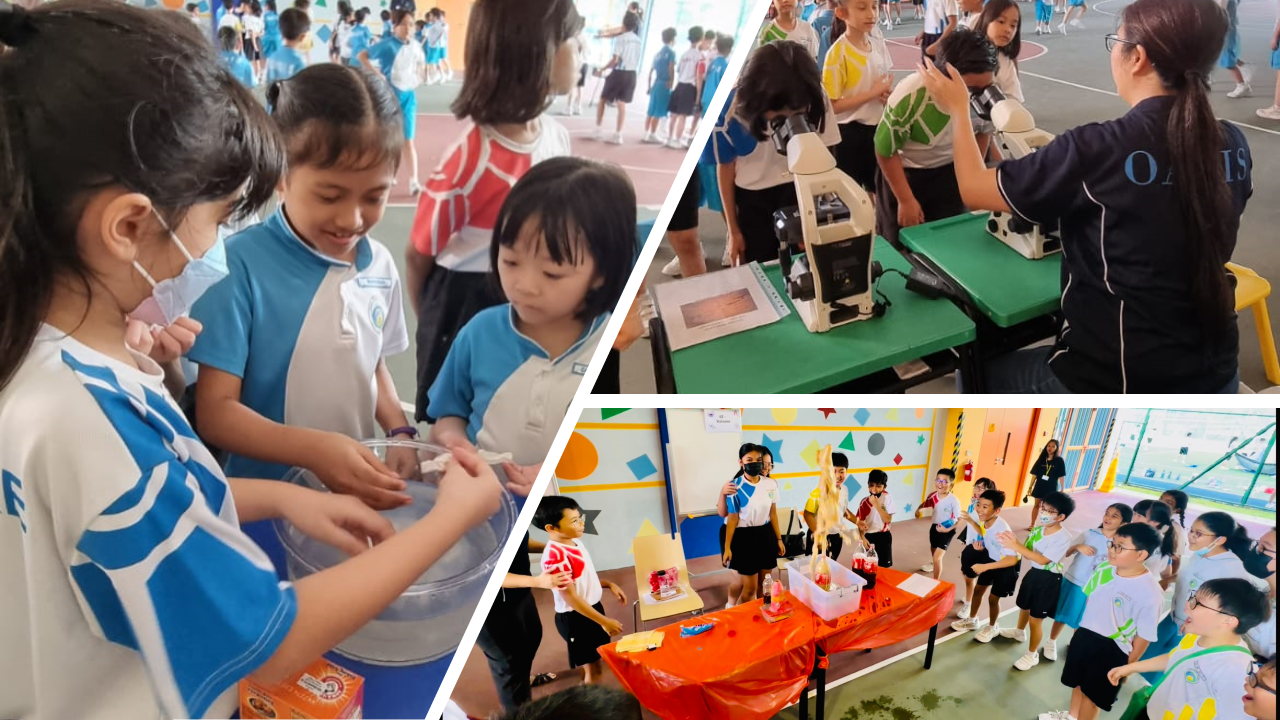
Place-based Learning at Garden Sanctuary
1. Garden Sanctuary Trail (P3)
Leveraging the power of place-based learning, we extend the learning of plants beyond classroom teaching. At Oasis Garden Sanctuary, students use mobile microscopes and iPads to collect and compare specimens of different plant parts. The students have to work collaboratively in groups to complete the Trail activities.

2. Investigating factors affecting the environment (P6)
P6 students investigating the temperature and light of the environment in the garden that affects the survival of the organisms living there. Using the data loggers, the students used the sensors to gather the data for their discussion.

3. Place-based Learning - Sustainable Singapore Story
Place-based Learning in Oasis incorporates inquiry activities, which enable students to pose questions and investigate problems based in real-world contexts.
Many students find inquiry approaches to learning engaging, drawing them into study of questions they find personally interesting. Development of inquiry skills enhances critical thinking, intellectual growth, and students’ ability to take responsibility for their own learning.
The murals focus on Singapore’s Sustainable Story, which provide information about a different aspect of sustainability in Singapore.

Toy Boat Making Project (P3)
As part of the Inter-disciplinary Project, students apply their knowledge of the properties of different materials to design and create a toy boat. In this project, students learn to choose and use the most appropriate recyclable materials to design and make their toy boats. Students also learn the value of synergy in working together as a team.
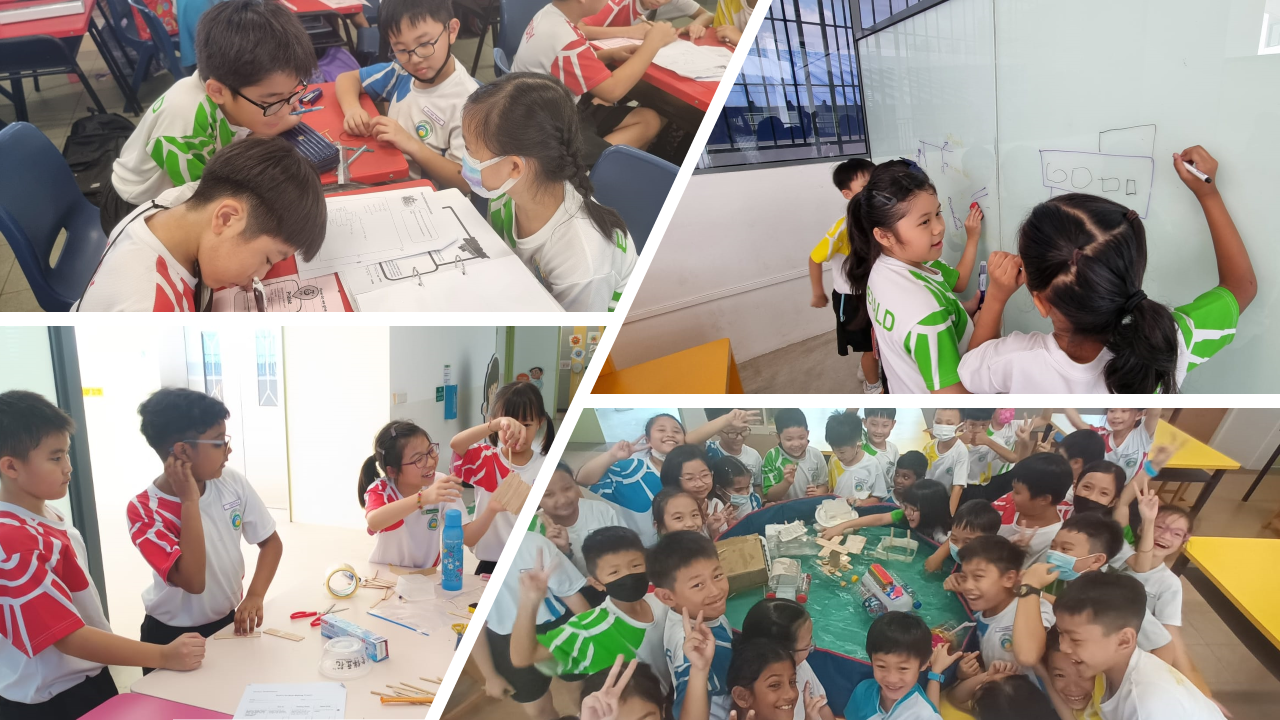
Learning Journey to Sungei Buloh Nature Reserve (P6)
Students explore the Sungei Buloh Wetland Reserve in its most natural form as they experience the theme of interactions in real life (adaptations, population and community). They have the opportunities to identify the adaptations found and observe the various organisms that are interdependent on one another for survival.
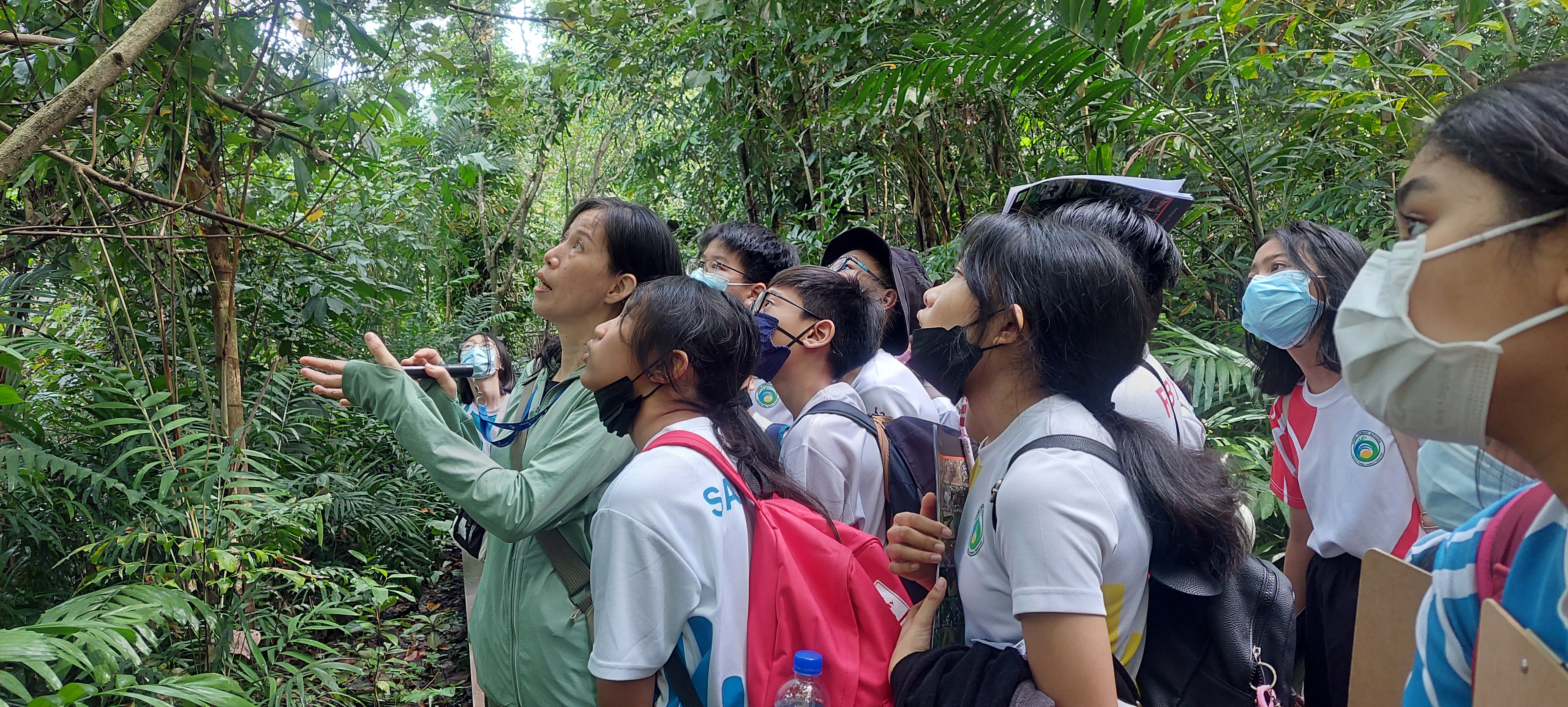
Vermicomposting Enrichment Programme (P4)
Students take a hands-on approach to learn how they can turn daily kitchen waste into organic fertilisers for plants. They are also given some insights on the biology of earthworms and the conditions required to expedite composting.
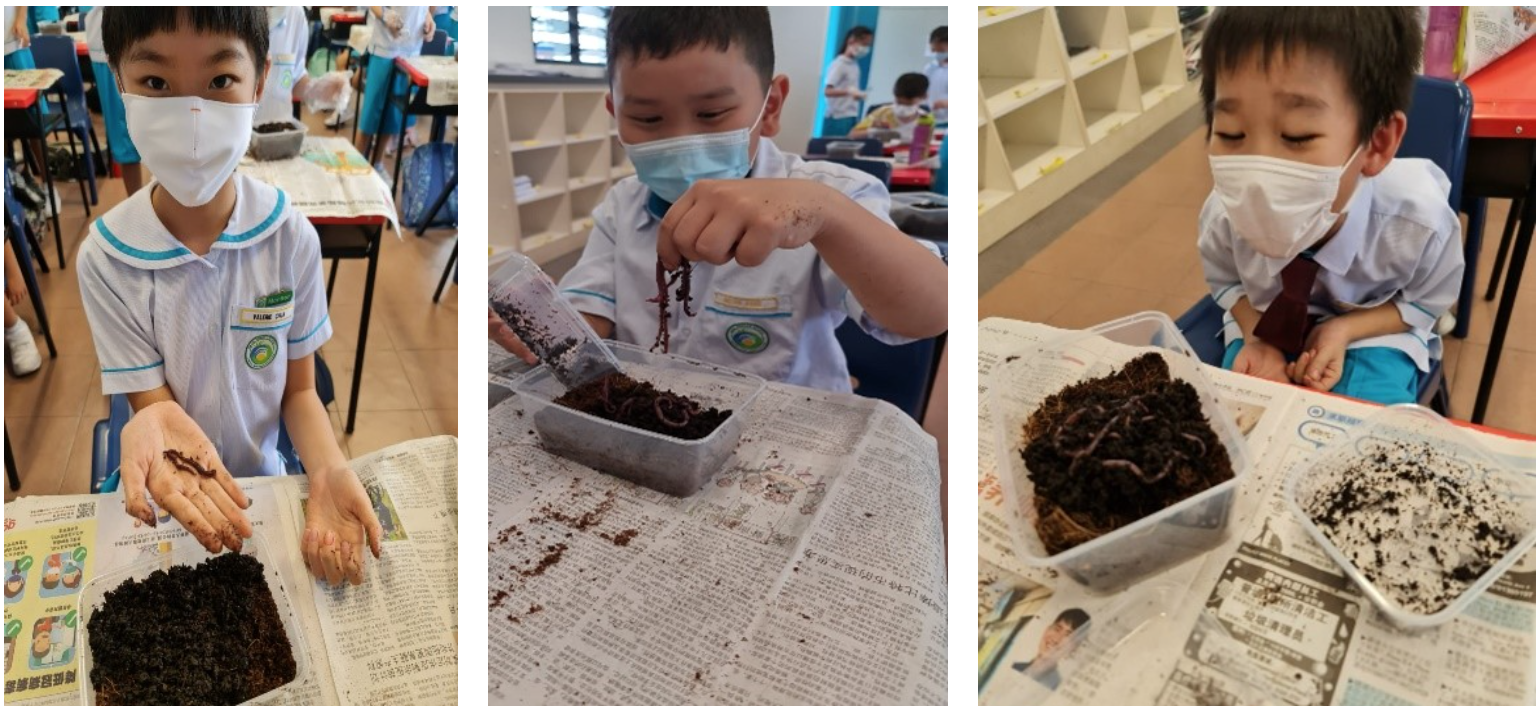
E2K Science Programme
The Excellence 2000 (E2K) Science Programme is an enrichment programme for selected Primary 4 students who demonstrate higher readiness in Science. This enrichment programme develops students’ scientific thinking and reasoning skills and deepens their conceptual understanding through an inquiry approach.
Students are provided with the opportunities to collaborate with their peers and engage in scientific investigations involving more advanced Science concepts specially designed for this programme.
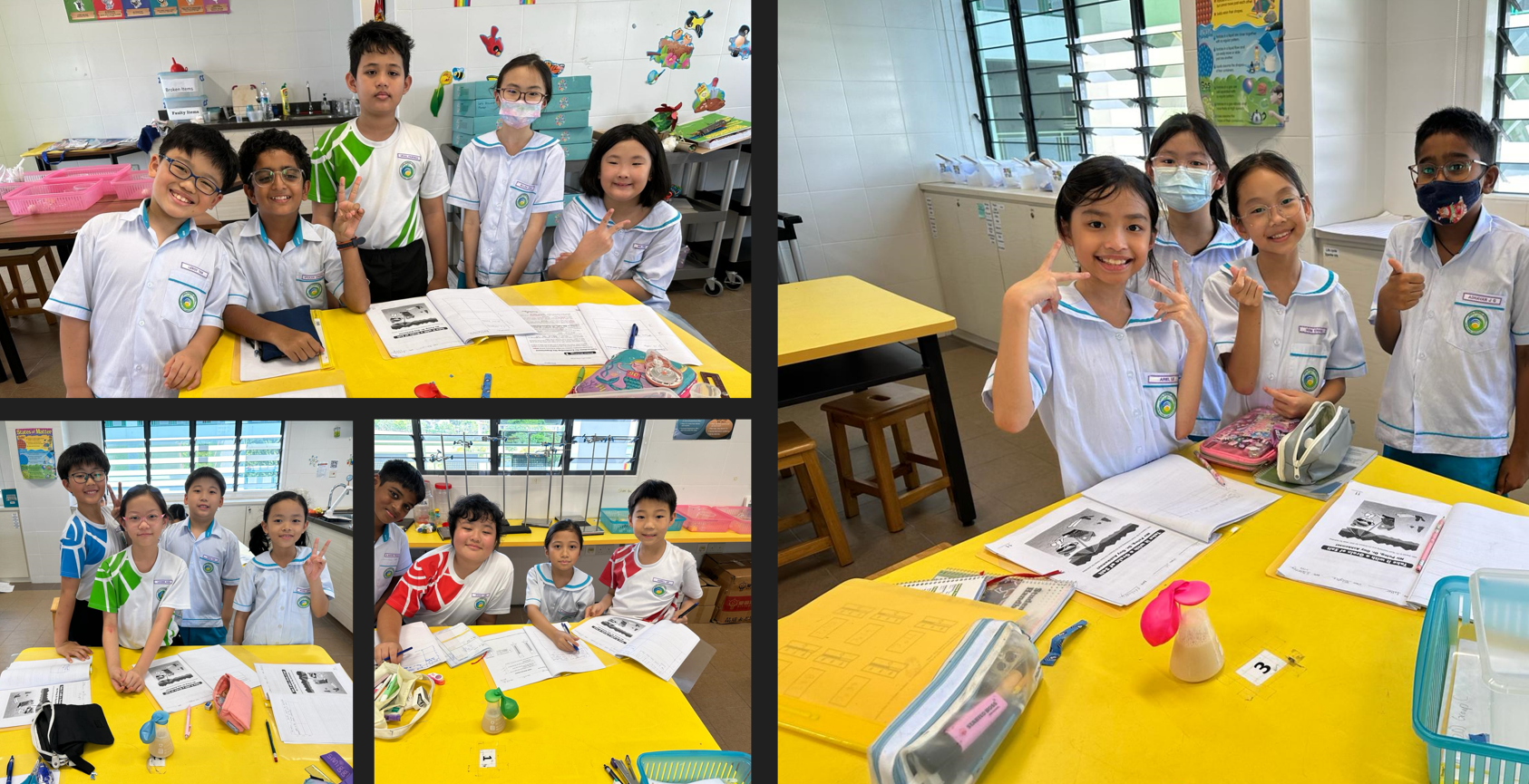
Joy of Learning Science

